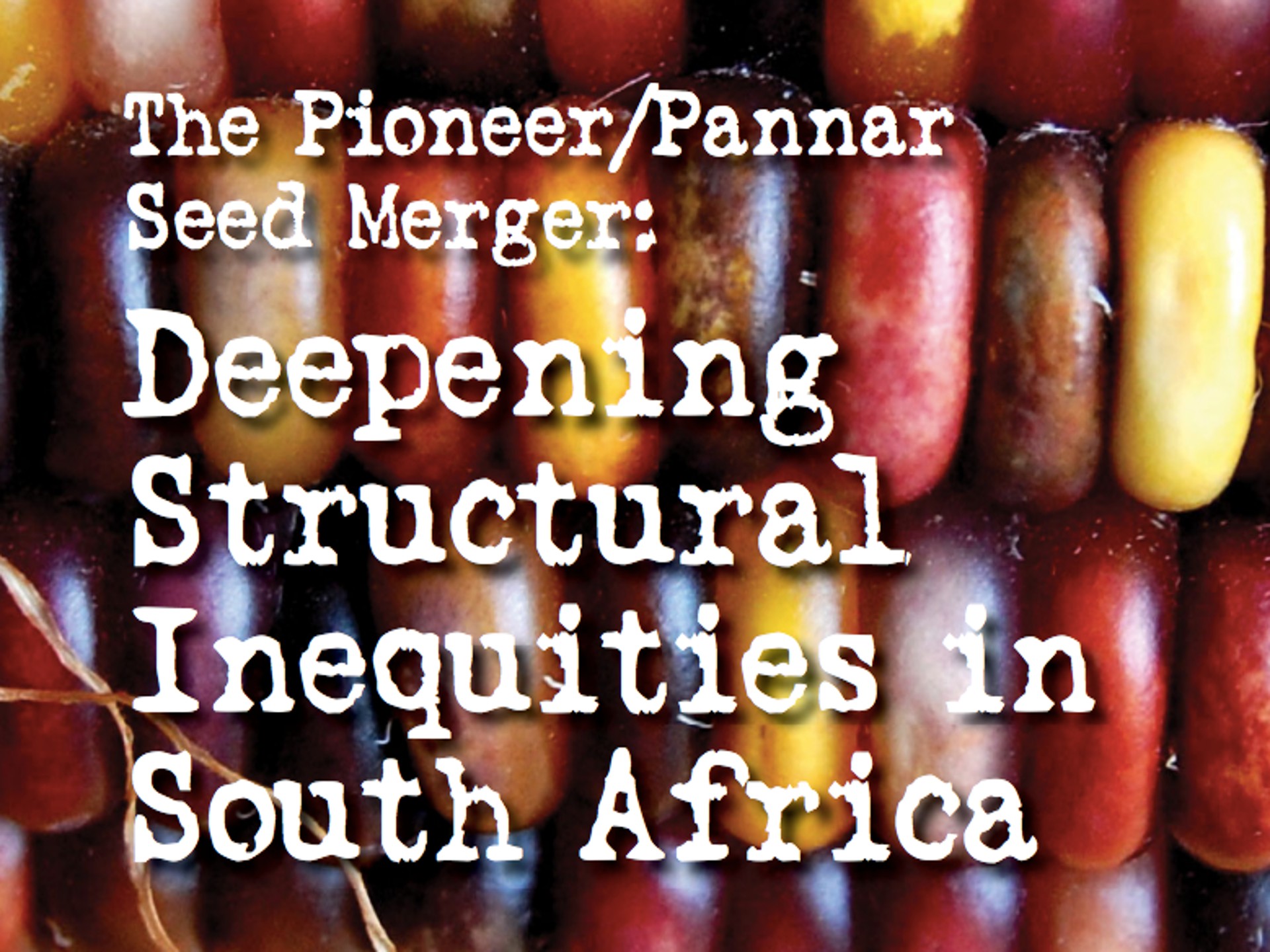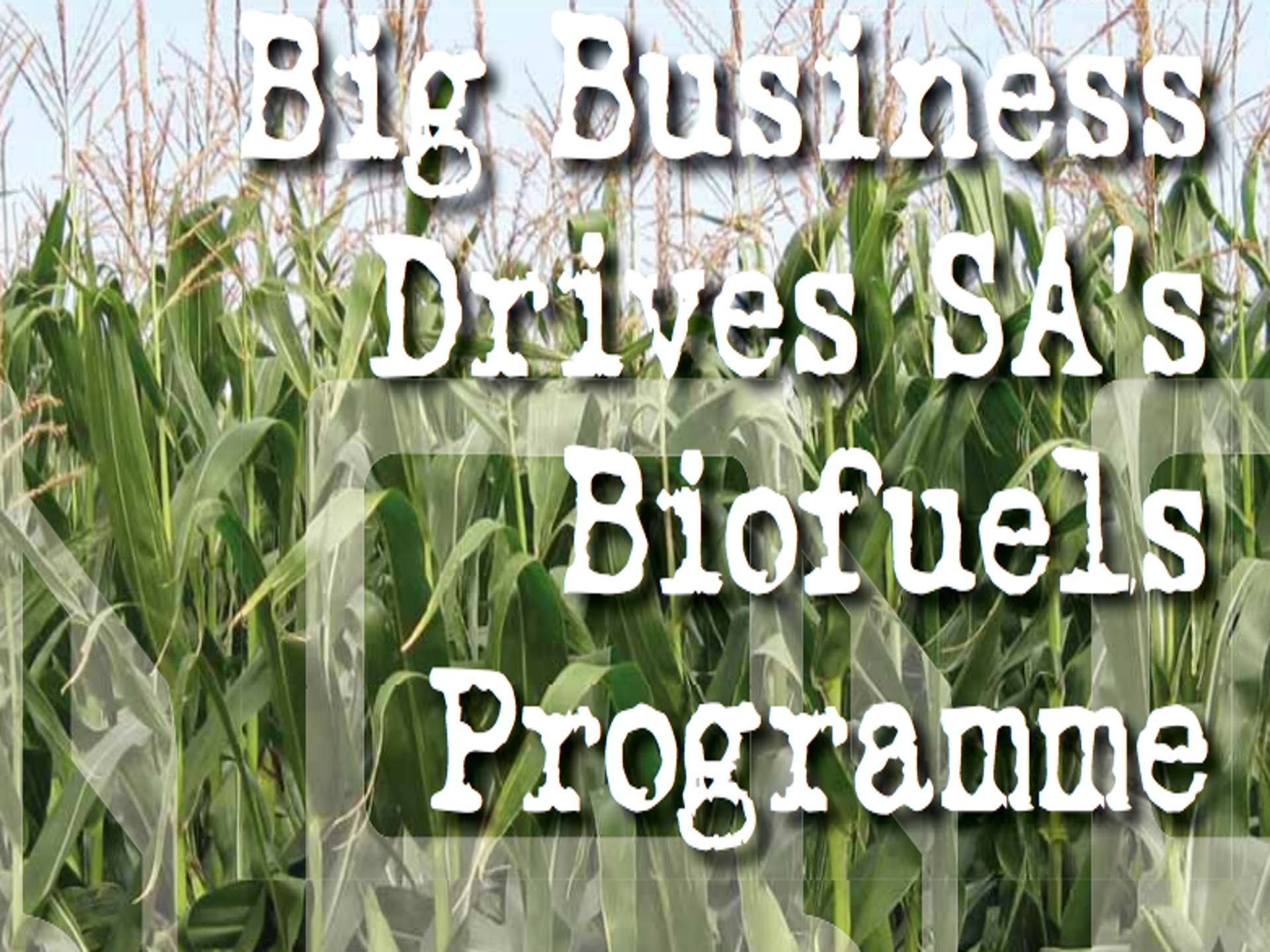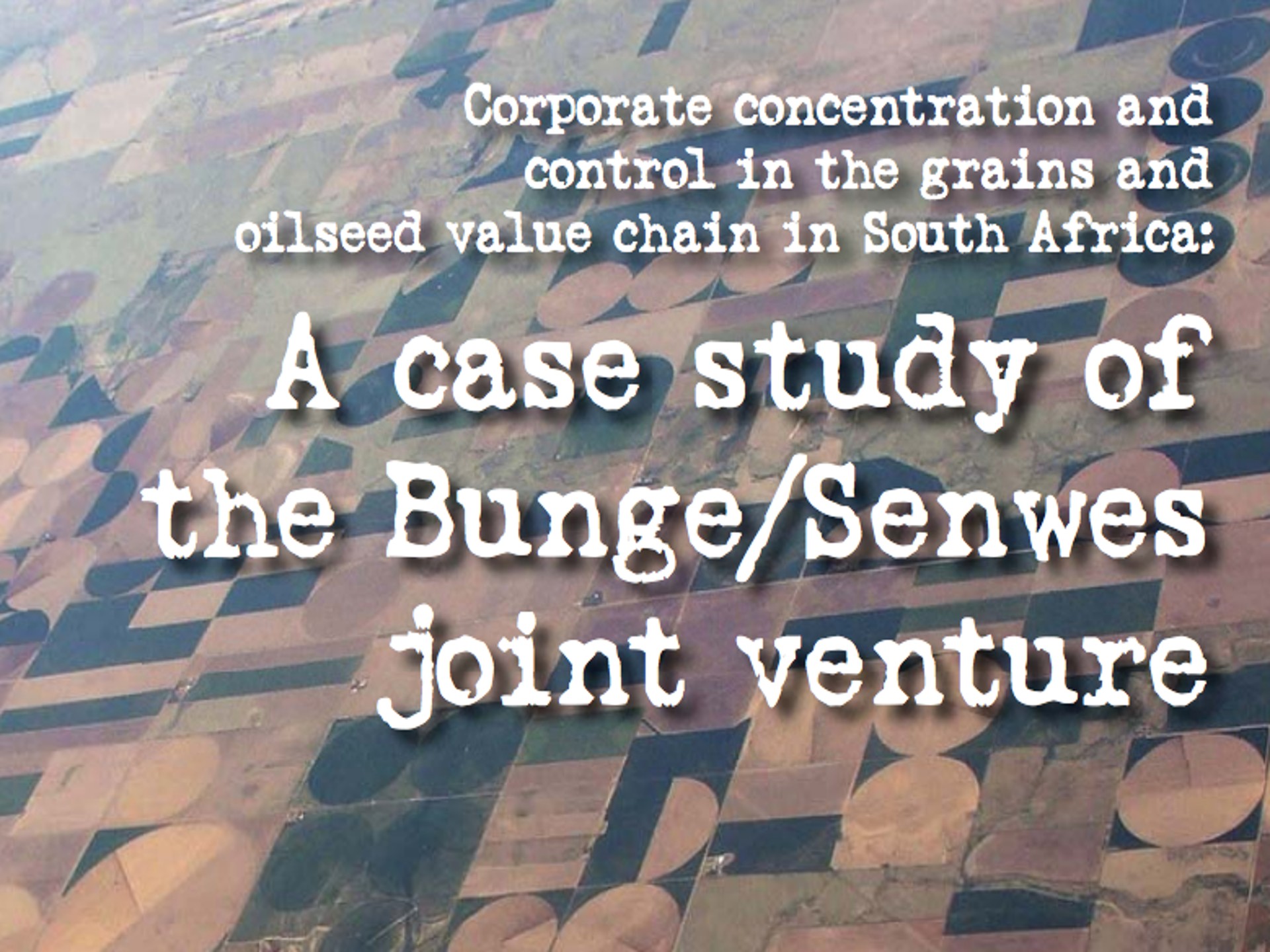Latest Resources

15 May 2013
STATEMENT BY CIVIL SOCIETY IN AFRICA
MODERNISING AFRICAN AGRICULTURE: WHO BENEFITS? African agriculture is in need of support and investment. Many initiatives are flowing from the North, including the G8’s “New Alliance for Food Security and Nutrition in Africa” and the Alliance for a Green Revolution in Africa (AGRA). These initiatives are framed in terms of the African Union’s Comprehensive African […]

25 September 2012
Open Letter to African Governments and AGRA (The Alliance for a Green Revolution in Africa)
The undersigned 28 civil society organisations support and represent the interests of smallholder farmers and livestock keepers from Ethiopia, Kenya, Mozambique, South Africa, Tanzania, Uganda, Zambia, and Zimbabwe, and are concerned with the conservation of agricultural biodiversity for livelihood security and food sovereignty. View the full statement here.

13 September 2012
The Pioneer/Pannar seed merger: deepening structural inequalities in South Africa
In this briefing, we deal with the Pioneer/Pannar seed merger, outlining the evidence led by the ACB in opposing the merger, what is at stake for South Africa if the merger is approved and the extent to which the merger will deepen structural imbalances in the South African economy. Read the briefing here.

31 July 2012
Call on BASF, Bayer, and Syngenta to stop marketing highly hazardous pesticides
PAN Germany, a charitable organisation which provides information on the adverse effects of pesticides and promotes environmentally friendly and socially just alternatives. We will send the following letter in your name: To: Syngenta, Martin Taylor, Chairman of the Board of Directors Bayer CropScience, Sandra E. Peterson, Chief Executive Office BASF, Wayne T. Smith, Member of […]

28 May 2012
Smallholder farmers and consumers to pay the price for corporate seed merger
The African Centre for Biosafety (ACB) learned today that US multi-national seed company Pioneer Hi-Bred has been granted permission by the Competition Appeal Court, to acquire the nation’s last major independent seed company, Pannar seed. The ACB was an intervening party, opposing the merger in the public interest. In granting the merger, the court has […]

15 May 2012
Big Business Drives SA’s Biofuels Programme
In late February 2012 leading figures from the fossil fuel industry met in Pretoria to forge ahead with the government’s highly controversial plans for an SA biofuels industry. The catalyst for this meeting was the publication by the government last September of draft regulations for the mandatory blending of biofuels in the nation’s fuel supply. […]

9 January 2012
ACB comments on biofuels mandatory blending
The African Centre for Biodiversity hereby lodges its objections and comments to the draft regulations regarding the mandatory blending of biofuels with petrol and diesel. Read here.

14 October 2011
ACB applauds tribunal decision to prohibit Pioneer Hi Bred and Pannar seed merger
The African Centre for Biosafety (ACB) applauds today’s decision of the Competition Tribunal (Tribunal) to prohibit the seed merger between multinational seed company Pioneer Hi Bred, and South Africa’s largest seed company, Pannar Seed. During December 2010, the Competition Commission prohibited the merger and the merging parties referred the Commission’s decision to the Tribunal for […]

3 October 2011
Corporate concentration and control in the grains and oilseed value chain in South Africa: A case...
The Bunge/Senwes joint venture signals the first significant investment by Bunge in Africa. Bunge is one of the world’s largest and most influential corporations and is amongst a handful of companies dominating global trade in agricultural commodities. Senwes holds a dominant position in the South African market for the storage and handling of grain crops. […]

7 September 2011
Global grain giant Bunge, to enter SA market!
The Competition Commission has on 2nd September 2011, approved, with conditions, a joint venture between the multinational grain trader Bunge, and South African grain storage and trading company, Senwes. In terms of the joint venture, a separate legal entity, Bunge Senwes Proprietary Ltd, has been formed, with each party controlling 50%. According to Mariam Mayet […]
